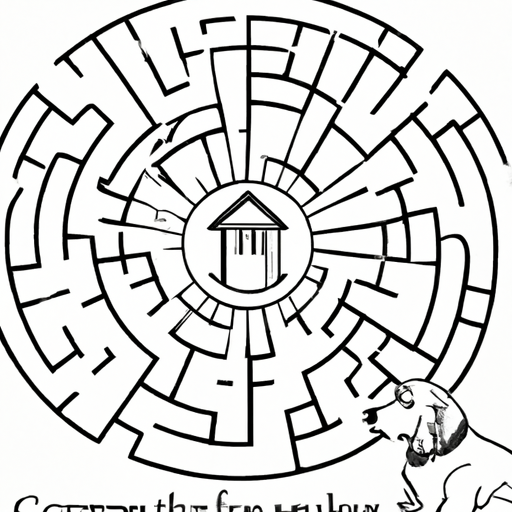Introduction
Ever wondered how your four-legged friend always manages to find its way home? You’re not alone. The innate ability of dogs to navigate their way back to their homes, often across vast distances, has fascinated dog owners and scientists alike. Let’s dig a little deeper into the mystery of canine navigation.
The Science Behind Canine Navigation
Dogs possess a number of natural abilities that allow them to navigate their surroundings. From their keen sense of smell to their heightened hearing, these furry friends have many tools in their arsenal.
- Sense of Smell: Dogs have an extraordinary sense of smell, which can be 1,000 to 10,000 times more sensitive than humans. They use this powerful sense to pick up scent trails, which they can follow back home.
- Hearing Abilities: Dogs can hear higher-pitched sounds than humans, and they can also hear sounds from a further distance. This can help them locate their home from afar.
- Magnetic Field Sensing: Some studies suggest that dogs can sense the Earth’s magnetic field, which may help them navigate.
| Canine Sense | Function | Importance |
|---|---|---|
| Smell | Detect scent trails | Navigate home |
| Hearing | Detect sounds from afar | Locate home |
| Magnetic Field Sensing | Sense Earth’s magnetic field | Navigate |
Are Some Breeds Better Navigators?
While all dogs have these innate abilities, some breeds are better navigators than others. Breeds that were developed for tasks requiring a strong sense of direction, such as hunting or herding, tend to have a better sense of direction.
For example, the Bloodhound, with its incredible olfactory ability, is renowned for its tracking skills. Similarly, breeds like the Border Collie and the Australian Shepherd, developed for herding livestock, are known for their excellent navigation capabilities.
How Can You Assist Your Dog’s Navigation?
Even though dogs have these incredible abilities, they can still get lost. Luckily, there are ways you can help guide them home:
- Regularly walk them around your neighborhood. This helps them familiarize themselves with the local scents and landmarks.
- Microchip them. This doesn’t help them navigate, but it does help other people get them back to you if they’re found.
- Train them. Basic commands like “stay” and “come” can help prevent them from getting lost in the first place.
Preventing Your Dog From Getting Lost
Prevention is always better than cure. Here are some tips to prevent your dog from getting lost:
- Always keep them on a leash when walking in unfamiliar areas.
- Make sure your yard is secure, with no holes or gaps in the fence.
- Don’t leave them unsupervised outside.
FAQ
Q: Can all dogs find their way home?
A: While all dogs have some innate navigational abilities, not all dogs will be able to find their way home if they get lost. This is particularly true for puppies and older dogs.
Q: Are certain breeds better at finding their way home?
A: Yes, some breeds, particularly those bred for tasks requiring a good sense of direction, may be better at finding their way home.
Q: How can I help my dog find its way home if it gets lost?
A: Regular walks, microchipping, and training can all help a lost dog find its way home. Preventive measures are also important.



